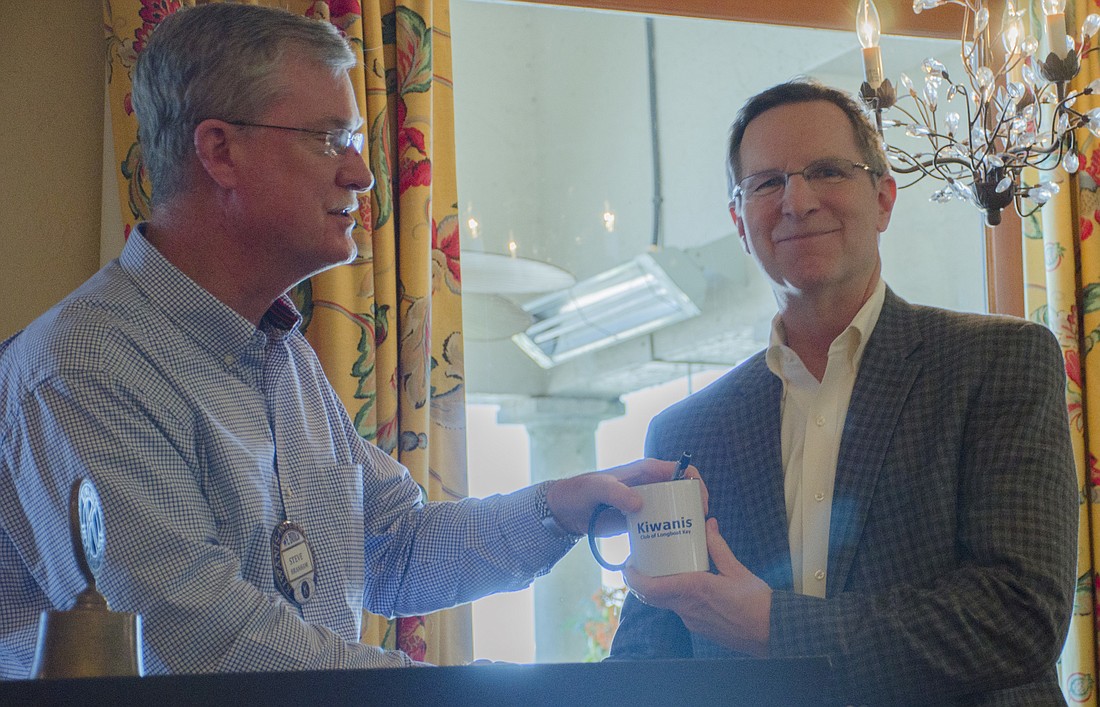- April 25, 2024
-
-
Loading

Loading

The Internet affects nearly every aspect of modern life — from finances to friendships. But this inherent integration into daily ritual has left much of the population at risk.
Cyber threats were the crux of a discussion at the March Kiwanis meeting, where retired Air Force Brig. Gen. Charly Shugg, who helped establish the Air Force Cyber Command, described how the Internet became so ubiquitous and how it can be used for nefarious activities.
Twelve people ate key lime pie around tables while Shugg presented the history of the Internet and how it became such a useful tool. To give credence to the latter assertion, Shugg said that 91% of adults in the United States own a phone with more computing power than a spaceship or satellite.
In just one minute, Shugg said:
“This whole environment is very complicated,” Shugg said. “The whole infrastructure is built on talking to people.”
But security, Shugg said, was an afterthought.
Criminals have taken advantage of that lack in foresight by using malware to lock an individuals or companies computer system and requiring some sort of ransom to get information back. This is called ransomware, a form of digital extortion, Shugg said.
It’s also a space for nation states to steal secrets from each other, disrupt activities and influence populations, as seen in the 2016 election. Some 120 countries around the world have offensive capabilities in cyber warfare, Shugg said.
Terrorists also use the platform for propaganda, recruiting and funding, said Shugg, executive director of the Global Consortium for Counter Cyber Terrorism. Notably, however, those groups haven’t used the Internet as a means for attack.
Although there is cyber insurance, Shugg said it’s a fledgling industry that hasn’t quite figured out what to cover and how much premiums would be.
The best way to protect information online is two-step verification, Shugg said, a means of security where an email or text access code will be sent anytime an account is accessed.